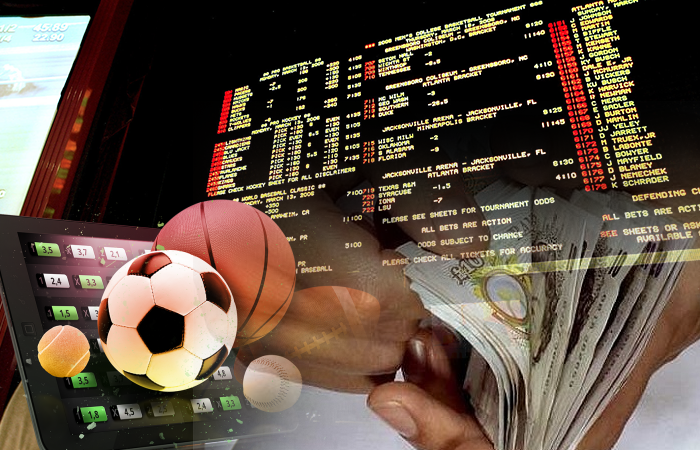How to play poker tournaments 5
1xbet indir: Azərbaycanda ən yaxşı bahis platformasına qoşulun
June 4, 2025Top-rated casinos with live dealers 1
June 4, 2025
How to Play Poker Tournaments
Poker tournaments are not just about luck; they require skill, strategy, and a deep understanding of the game. Whether you’re a novice player or a seasoned veteran, knowing how to navigate the unique format of tournaments can greatly enhance your chances of success. This guide will delve into the key elements of playing poker tournaments, offering valuable insights and advice to help you get the most out of your poker experience. Remember, you can find plenty of excellent resources to enhance your skills, including platforms like How to play poker tournaments Marvelbet.
Understanding Tournament Structure
Before you jump into a poker tournament, it’s crucial to understand the structure of the event you’re entering:
- Starting Chips: Most tournaments provide players with a fixed number of chips to start the game. This amount can vary greatly between tournaments.
- Blind Levels: Tournaments feature escalating blinds that increase at regular intervals. This structure urges players to act, preventing the game from stagnating.
- Payout Structure: The way prizes are distributed can vary significantly. Some tournaments pay only the top finishers, while others may award a significant percentage of players.
Choosing the Right Tournament
Not all tournaments are created equal. Here are some factors to consider when choosing the right tournament for you:
- Buy-in Amount: Ensure the buy-in fits your budget. Higher buy-ins typically attract more skilled players.
- Tournament Format: Decide if you prefer a Sit & Go, Multi-Table, or a freezeout tournament. Each format offers distinct strategies.
- Skill Level of Players: Research the tournament past and consider your skill level compared to other players.
Essential Tournament Strategies

Having a solid strategy is imperative for success in tournaments. Below are several key strategies to consider:
1. Early Stage Strategy
In the early stages of a tournament, the blinds are relatively low compared to your chip stack. This is the time to play conservatively and build your stack:
- Focus on playing premium hands.
- Avoid going all-in unless you have a strong hand.
- Pay attention to the stacks of your opponents; this information can help you make better decisions.
2. Middle Stage Strategy
As the tournament progresses and blind levels increase, you’ll need to adjust your strategy:
- Start playing more aggressively to accumulate chips while still maintaining caution.
- Identify players who are playing tightly and attempt to exploit their weaknesses.
- Continue to monitor your opponents’ betting patterns and adjust accordingly.
3. Late Stage Strategy
The late stages of a tournament are crucial and often define the outcome:
- Be more aggressive, especially if you have a decent chip stack and can pressure shorter stacks.
- Pay attention to the bubble (where the next player out does not receive a payout) and adjust your play to capitalize on this situation.
- Focus on ICM (Independent Chip Model) considerations to maximize your potential earnings.

Managing Your Bankroll
Effective bankroll management is essential for any poker player, especially in tournaments. Here are some tips:
- Set aside a specific amount for tournament play and stick to it.
- Avoid playing in tournaments with buy-ins that are more than 5% of your total bankroll.
- Consider reinvesting your winnings wisely to continue playing more tournaments.
Psychological Factors in Poker Tournaments
Your mental state can greatly affect your performance in a tournament. Here are some factors to keep in mind:
- Stay Calm: Whether you’re winning or losing, maintaining a level head is vital for making sound decisions.
- Practice Patience: Tournaments can be lengthy. Cultivate the patience to wait for the right opportunities to act.
- Avoid Tilt: Recognize when you are on tilt and take breaks if needed to collect your thoughts and stay focused.
Learning from Each Tournament
After each tournament, take some time to reflect on your performance:
- Consider what worked well and what didn’t.
- Take notes on your hands to analyze them later.
- Seek feedback from more experienced players and watch footage of your play if possible.
Conclusion
Poker tournaments can be an incredibly rewarding experience, providing thrills and the opportunity for significant wins. By understanding the tournament structure, employing effective strategies, practicing sound bankroll management, and focusing on the psychological aspects of the game, you can improve your chances of success. Remember that becoming a skilled tournament player takes time and dedication. Stay committed, learn from each experience, and you’ll find yourself on the path to becoming a poker tournament champion.

